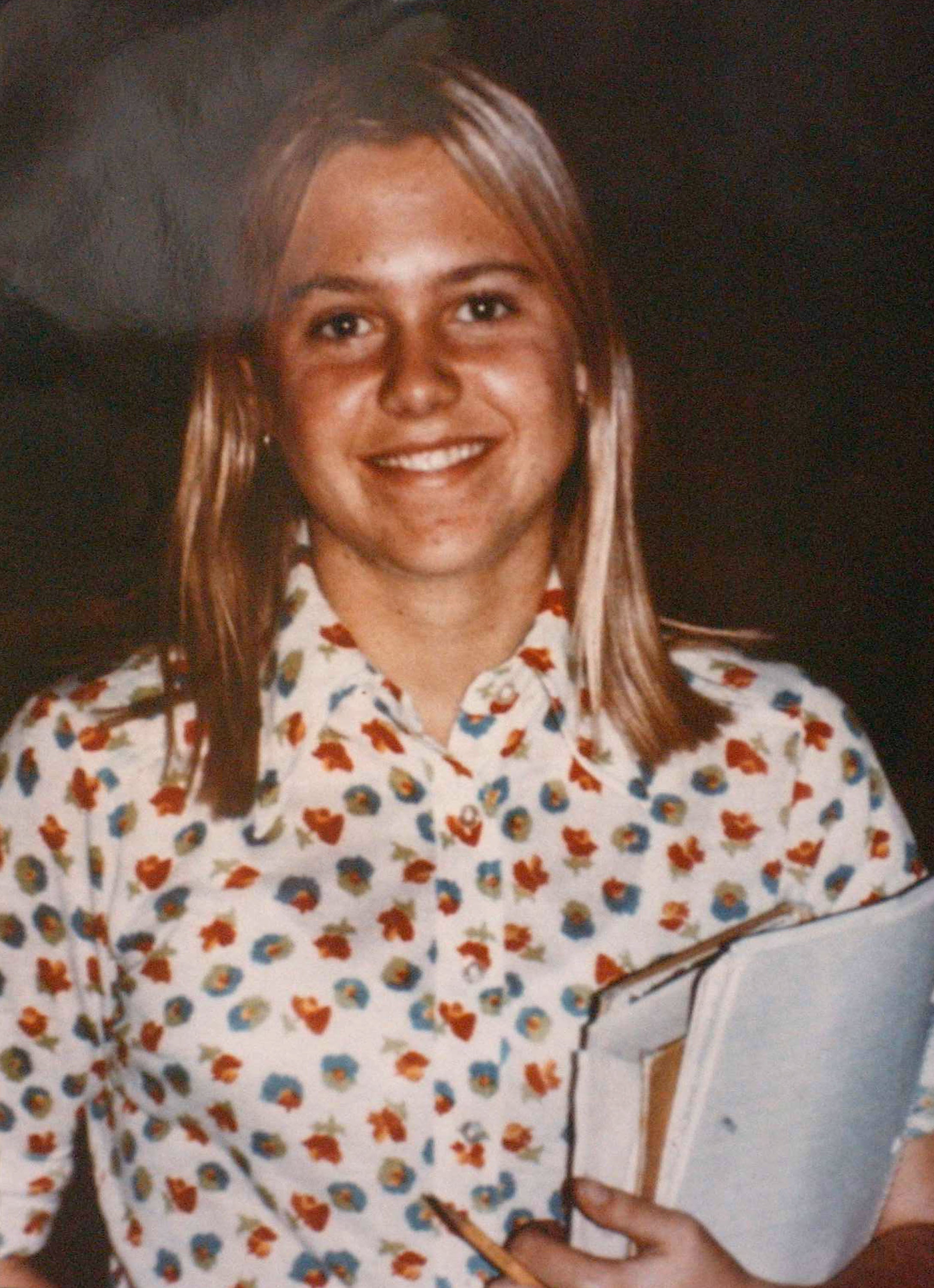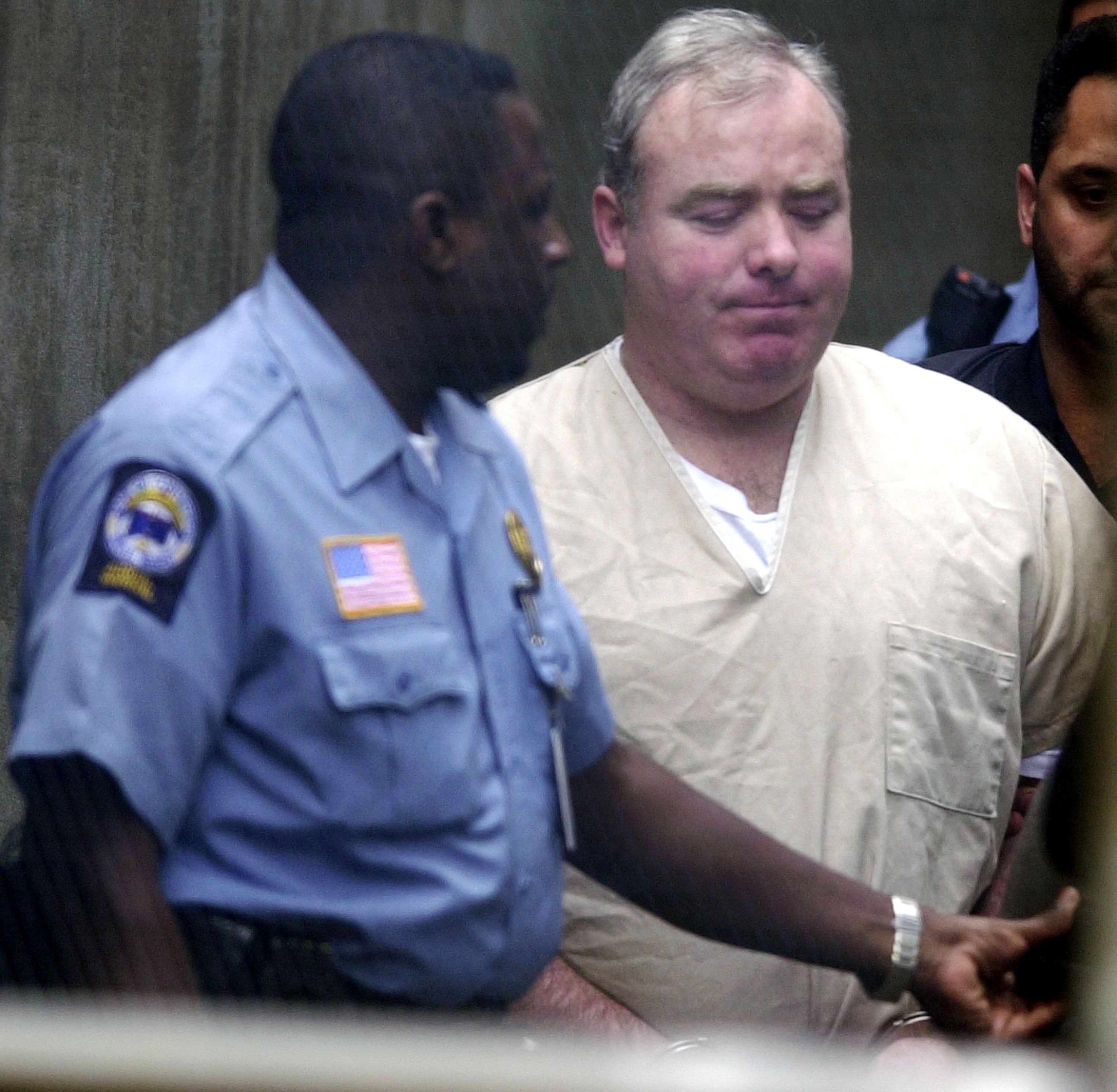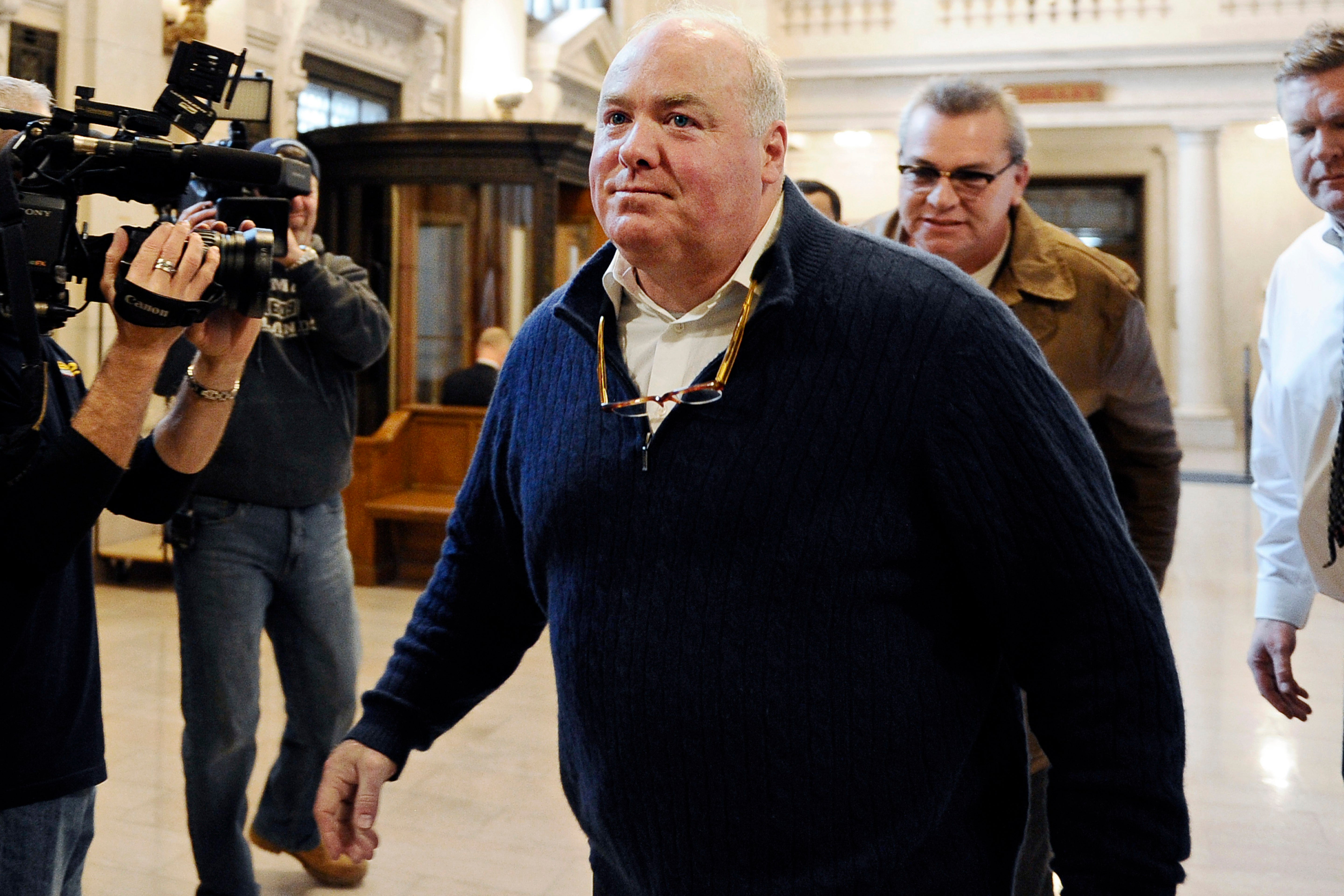
For nearly 50 years, a quiet, affluent community in Connecticut has been haunted by the unsolved murder of Martha Moxley, a 15-year-old who was bludgeoned to death with a golf club.
It happened on the night before Halloween, known to some as the “Night of Mischief” in which teenagers celebrate the holiday one night early by terrorizing the neighborhood with relatively harmless pranks like egging and toilet-papering houses.
Martha Moxley, who lived in Belle Haven, a gated community in Greenwich, Connecticut, joined in on the fun with her friends on October 30, 1975.
But when she missed her curfew, her parents became worried and set out to look for her.
The next day, Martha was found dead in her backyard. Pieces of a broken six-iron golf club were found near her body. An autopsy revealed she had been bludgeoned and stabbed with the club.
While some residents assumed the murder was the work of a someone just passing through town who saw an opportunity to kill, the broken golf club led investigators to a house just across the street where the prominent Skakel family lived.

Michael Skakel, who was also 15 at the time of the murder, and his brother, Thomas “Tommy” Skakel, 17, nephews of Robert F. Kennedy’s widow, Ethel Kennedy, were both seen with Martha on the night she was killed.
For months leading up to her murder, Martha wrote in a diary about the neighbor boys, many times ranting about having to dodge Michael’s unwanted romantic advances.
The case drew international attention because of the prominent and wealthy Skakel family, their connection to the Kennedy dynasty, and the countless theories about who killed the teen.
But for decades, no one was charged with Martha’s murder.
Then in 2000, Michael Skakel was arrested. He was 41 years old when he stood trial in 2002.
Prosecutors argued that Skakel became enraged with jealousy over an alleged relationship between Martha and his brother Tommy, which led to him killing her in a drunken rage on that fateful night before Halloween.
Night of mischief … and murder
When Martha’s body was discovered in her own backyard, she had been bludgeoned to death and her jeans and underwear were pulled down around her knees.
However, according to Jack Solomon, Easton, Connecticut’s Chief of Police at the time, there was no evidence of sexual assault.
She had been attacked so violently that the club’s metal shaft had snapped. It was then driven through her neck, according to the Hartford Courant.
“Martha was struck with a golf club. She received several blows to the head. The head of the club was found 50 feet from the portion of her driveway where we believe she was accosted,” he said at the time. “It’s believed that the portion of the shaft of the golf club that was used was later used as a weapon to stab her with.”
Martha had last been seen alive with friends, including her neighbors, Michael and Tommy.
Michael told police at the time that both he and his brother spent some of the night with Martha, but had at some point left her to go to his cousin Jimmy Terrien’s house, where he and several of his relatives allegedly gathered to watch Monty Python’s Flying Circus, according to CNN.

The brothers were both considered possible suspects in the case, along with 24-year-old Kenneth Littleton, who was a live-in tutor in the Skakel household, CBS News reported at the time. But no arrests were made.
Then in 1991, the rape trial of William Kennedy Smith brought the case back to life. Police looked into rumors that Smith, another Kennedy cousin, knew something about Martha’s murder. Smith was acquitted in the rape case and no connection was found to Martha, CBS News reported.
But there was once again interest in the case, which even inspired several books, including the novel A Season in Purgatory by Dominick Dunne.
A special grand jury was appointed to investigate Martha’s death in 1998 and in 2000, Michael Skakel, then 39 years old, was arrested for murder.
Martha Moxley’s diary
At the trial, prosecutors argued that Michael was angry with Martha because she had spurned his advances while having a sexual liaison with his brother, Tommy, and pointed to entries in her diary as evidence.
In her entries, she described her relationship with the Skakel brothers, which prosecutors argued showed the rivalry between them, according to Oxygen True Crime.
While her friends told police that Tommy had wanted to date her, it appeared that his advances might not have always been welcomed.
About a month before her murder, Martha wrote in her diary that she was going out for ice cream with Michael and Tommy: “Went driving in Tom’s car ... and I was practically sitting on Tom’s lap. … He kept putting his hand on my knee.”
“He kept doing stuff like that. Jesus if Peter ever found out I would be dead! I think Jackie really likes Michael & I think maybe he likes her (maybe because he was drunk, but I don’t know),” the entry continued.
On October 4, 1975, a little over three weeks before her murder, she wrote: “I went to a party … Tom S. was being an ass. At the dance, he kept putting his arms around me and making moves.”
Another entry described an interaction with Michael.
“Michael was so totally out of it that he was being a real asshole in his actions & words. He kept telling me that I was leading Tom on when I don’t like him (except as a friend). I said, well how about you and Jackie? You keep telling me that you don’t like her & you’re all over her. He doesn’t understand that he can be nice to her without hanging all over her. Michael jumps to conclusions. I can’t be friends w/ Tom, just because I talk to him, it doesn’t mean I like him. I really have to stop going over there.”
A little over a month later, Martha was bludgeoned to death with a golf club that belonged to the Skakel family.
At one point in the trial, two people who had been in a Maine substance abuse treatment center with Michael Skakel claimed he had confessed to killing Martha.
Gregory Coleman told the court that Skakel said he would get away with murder because “I’m a Kennedy.” He later admitted he had taken heroin before giving that testimony, but said he stuck by his story.
Michael Skakel was convicted on June 7, 2002. He was sentenced to 20 years to life in prison.
Murder conviction overturned
After spending more than a decade in prison for the murder, a judge granted Skakel a new trial in 2013, saying his first attorney failed to adequately represent him. He was set free and has remained free ever since.
In 2018, the Connecticut Supreme Court vacated his murder conviction and ordered a new trial. But in 2020, the chief state’s attorney declined to prosecute Skakel again, solidifying his freedom.
In January 2024, Skakel filed a lawsuit alleging that authorities withheld evidence leading to his imprisonment for more than a decade after his wrongful conviction, The Independent reported earlier this year.
According to the lawsuit, the town of Greenwich, its police department and the investigator “conspired, assisted and/or otherwise acted jointly and/or in concert with one or more of each of the aforementioned others” to violate Mr Skakel’s civil rights.

He alleges authorities withheld statements from witnesses who said two other men were in Moxley’s neighborhood the night of her murder.
The defendants in the lawsuit “knew that there were other more likely suspects and that there was no probable cause to arrest and/or maintain a prosecution against the Plaintiff (Skakel), but continued to do so intentionally and maliciously, in order to convict a ‘Kennedy Cousin,’” the suit alleges.
Skakel’s lawsuit seeks unspecified compensation and punitive damages from both the city and investigator Frank Garr, who Skakel alleges had “deep antipathy” toward him and the entire Kennedy family.
The lawsuit also alleges Garr was looking to profit from collaborating on a book about Skakel killing Martha, and threatened witnesses so they would testify against him.
Skakel suffered violations of his constitutional rights, loss of liberty from his time in prison, humiliation, embarrassment, “severe emotional distress, terror and fear,” financial loss and harm and “destruction of reputation and family relationships,” the lawsuit says.
Their cousin, Robert F. Kennedy Jr., now a presidential candidate, was one of his staunchest defenders and wrote a book claiming Michael Skakel was framed.
Martha’s family has maintained their belief that Michael Skakel killed their daughter. Her father John passed away in 1988, but after news in 2018 that Michael Skakel’s conviction was overturned, her mother Dorthy Moxley told the New York Times: “There’s no doubt in my mind that he did it.”







